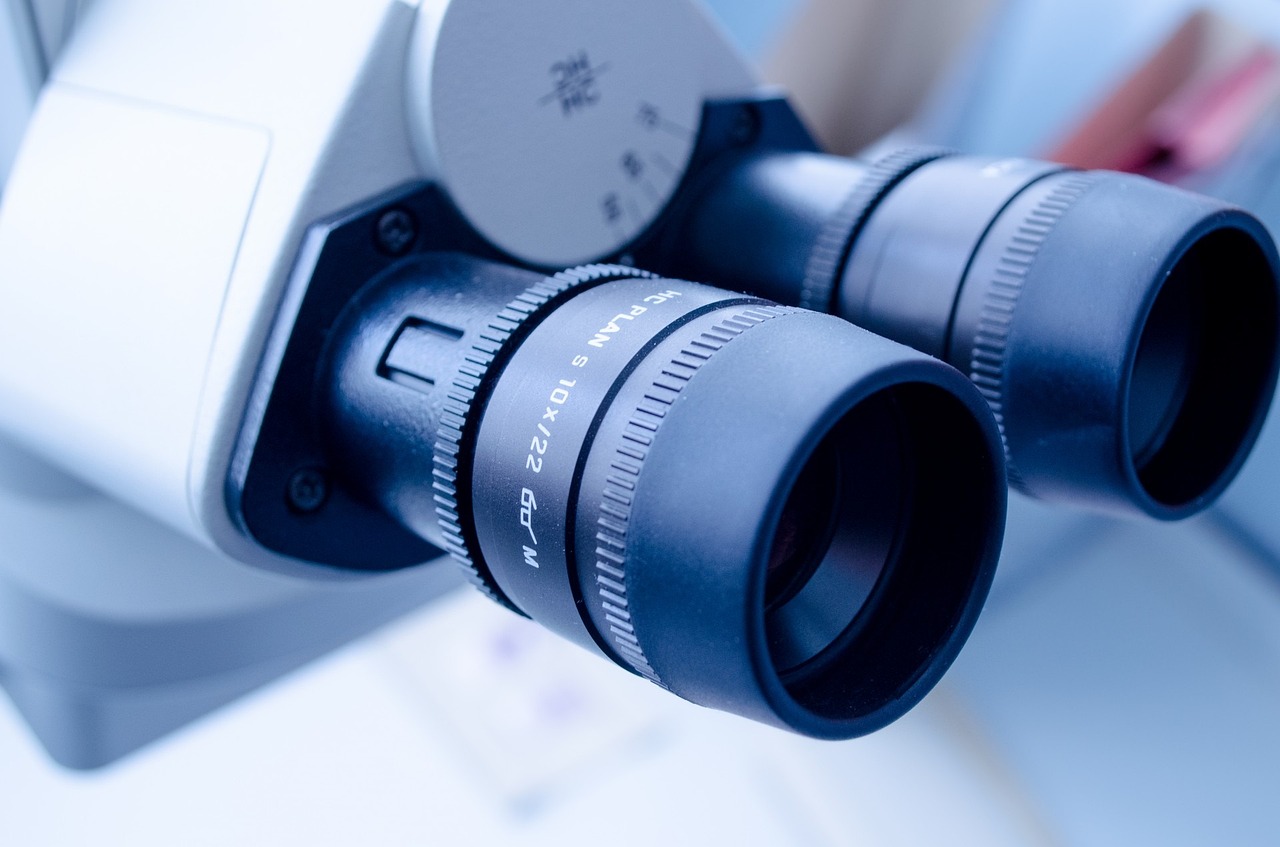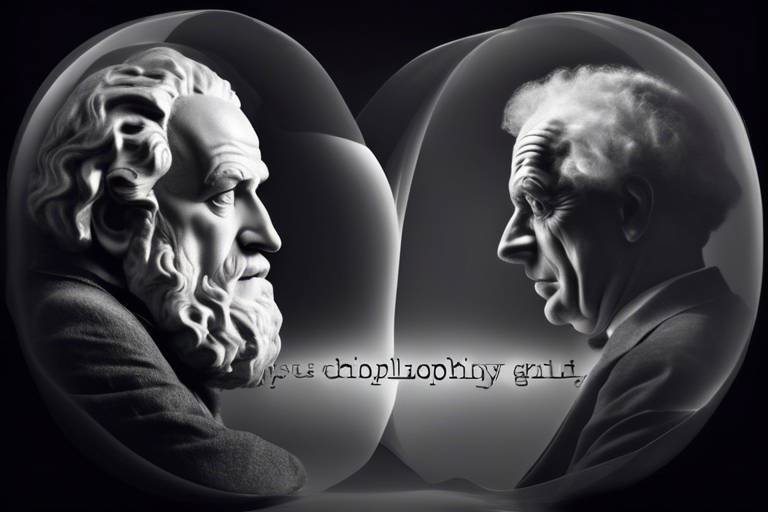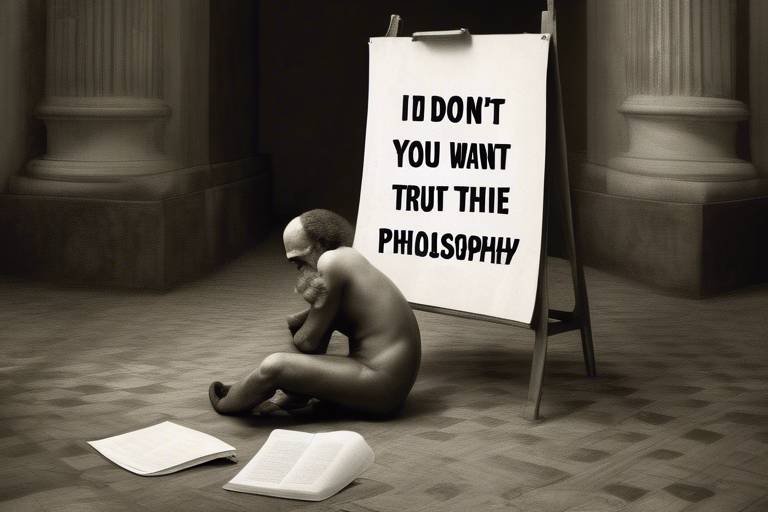Conceptual Thoughts of Future Philosophies
In the rapidly changing landscape of our world, the are becoming increasingly vital. As we navigate through the complexities of modern existence, we find ourselves at a crossroads where traditional philosophies are challenged and redefined. This article explores emerging ideas in philosophy, examining how they shape our understanding of existence, ethics, and consciousness in an ever-evolving world.
Philosophers today are not merely content to reflect on age-old questions; they are actively engaging with the pressing issues of our time. From climate change to technological advancements, the philosophical discourse is evolving to address these challenges in a meaningful way. For instance, consider how the rise of social media has not only transformed communication but also our perceptions of self and community. Philosophers are now tasked with unraveling the implications of these shifts on our collective identity and moral responsibilities.
Moreover, as we delve deeper into the interplay between human experience and technological innovation, we begin to see a tapestry of new philosophical inquiries emerge. Questions about the essence of humanity, the nature of consciousness, and the ethical dimensions of our choices are at the forefront of this exploration. Just as the advent of the printing press revolutionized knowledge dissemination, today’s technological advancements are reshaping our very understanding of what it means to be human.
As we embark on this philosophical journey, it's essential to recognize the diverse perspectives that contribute to our understanding of existence. Different cultures and traditions bring unique insights that enrich the conversation. For instance, Eastern philosophies often emphasize interconnectedness, while Western thought may focus more on individualism. These contrasting viewpoints can lead to a more holistic understanding of our reality and the ethical frameworks that guide our actions.
In conclusion, the conceptual thoughts of future philosophies are not just theoretical musings; they are crucial for navigating the complexities of modern life. By embracing these emerging ideas, we can better understand our place in the world and the ethical implications of our choices. As we look to the future, it is clear that philosophy will continue to evolve, challenging us to think critically about our existence, our values, and our responsibilities as global citizens.
- What is the significance of emerging philosophies? Emerging philosophies help us address contemporary issues and challenges in a rapidly changing world.
- How do technology and ethics intersect? Advancements in technology raise new ethical considerations that philosophers must explore to understand their implications on society.
- What role does consciousness play in philosophy? Consciousness is central to understanding human experience and reality, prompting various philosophical theories and discussions.
- How can different cultural perspectives enrich philosophical thought? Diverse cultural insights provide a broader understanding of existence and ethics, contributing to a more comprehensive philosophical dialogue.

Emerging Philosophical Trends
In today's fast-paced world, the landscape of philosophy is undergoing a profound transformation. As we grapple with the complexities of modern life, emerging philosophical trends are reshaping our understanding of existence, ethics, and our place in the universe. One of the most exciting aspects of this evolution is how contemporary issues—like climate change, globalization, and social justice—are influencing philosophical thought. Philosophers are no longer confined to abstract discussions; they are actively engaging with real-world problems, pushing the boundaries of traditional philosophy.
Take, for instance, the rise of eco-philosophy. With the planet facing unprecedented environmental crises, philosophers are increasingly focusing on our relationship with nature. They are asking critical questions: What is our ethical responsibility to the environment? How do we balance economic growth with ecological sustainability? This trend is not just about advocating for environmental protection; it's about rethinking our entire worldview. Many philosophers argue that we need to adopt a more holistic approach to existence, one that recognizes the interconnectedness of all life forms.
Another notable trend is the growing interest in posthumanism. As technology advances at breakneck speed, the definition of what it means to be human is being challenged. Philosophers are exploring the implications of merging human consciousness with machines, raising questions about identity, agency, and the essence of humanity itself. This line of thinking invites us to reconsider our place in the world and the very nature of consciousness. Are we on the brink of a new era where the boundaries between human and machine blur? And if so, what does that mean for our moral frameworks?
Furthermore, the impact of globalization on philosophical discourse cannot be overlooked. As cultures collide and blend, philosophers are increasingly drawing from diverse traditions, leading to a richer, more nuanced understanding of ethics and existence. This cross-pollination of ideas is fostering a global dialogue that transcends geographical and cultural boundaries. Philosophers are now more than ever recognizing the importance of inclusivity, advocating for perspectives that have been historically marginalized. This shift not only broadens the scope of philosophical inquiry but also enriches our collective understanding of the human experience.
In addition to these trends, the rise of digital philosophy is reshaping how we engage with philosophical concepts. The internet has become a platform for philosophical discourse, allowing for instant communication and collaboration among thinkers worldwide. Online forums, podcasts, and social media have democratized philosophy, making it accessible to a broader audience. This shift has led to a new wave of thinkers who are not afraid to challenge established norms and introduce radical ideas. The digital age is fostering a culture of questioning and curiosity, encouraging individuals to explore philosophical concepts in their everyday lives.
As we navigate these emerging trends, it's essential to recognize that philosophy is not a static field but a dynamic conversation. The challenges of our time are prompting philosophers to rethink age-old questions and consider new perspectives. By embracing these trends, we can gain deeper insights into our existence and the ethical dilemmas we face. The future of philosophy is bright, filled with potential for growth and understanding as we strive to make sense of an ever-evolving world.
- What is eco-philosophy? Eco-philosophy is a branch of philosophy that examines the ethical relationship between humans and the environment, advocating for a sustainable and holistic worldview.
- How does posthumanism affect our understanding of identity? Posthumanism challenges traditional notions of identity by exploring the implications of merging human consciousness with technology, questioning what it means to be human.
- What role does globalization play in philosophy today? Globalization facilitates the exchange of philosophical ideas across cultures, leading to a more inclusive and diverse philosophical discourse.
- How has the digital age changed philosophy? The digital age has made philosophy more accessible, allowing for instant communication and collaboration among thinkers, and fostering a culture of questioning and curiosity.

Technology and Ethics
As we sail through the digital age, the intersection of technology and ethics has become a hotbed of discussion. With each technological advancement, we find ourselves facing new dilemmas that challenge our moral compass. Imagine a world where artificial intelligence not only assists us but also makes decisions that could affect our lives. How do we ensure that these machines operate within the boundaries of ethical behavior? This is a question that philosophers, ethicists, and technologists are grappling with daily.
The rapid development of technologies such as artificial intelligence (AI) and biotechnology has led to a plethora of ethical considerations. For instance, consider AI's role in decision-making processes. When a machine is programmed to make choices, it raises questions about accountability. Who is responsible if an AI system makes a harmful decision? Is it the programmer, the user, or the machine itself? These questions are not just theoretical; they have real-world implications that can influence legislation, corporate policies, and societal norms.
The moral implications of AI are vast and complex. At the heart of the debate lies the question: Can machines possess ethical reasoning? While AI can analyze data and predict outcomes, can it truly understand the nuances of human morality? Some argue that machines lack the emotional intelligence necessary for ethical reasoning, while others believe that with the right programming, AI can be designed to make morally sound decisions. This leads us to consider the responsibilities of creators in ensuring ethical AI development. Are we as a society prepared to hold these creators accountable for the actions of their creations?
Another significant concern is how AI impacts human autonomy and decision-making. As we rely more on technology to guide our choices, we must ask ourselves: Are we losing our ability to make independent decisions? The influence of AI can be subtle yet profound. For example, recommendation algorithms on social media platforms can shape our opinions and preferences without us even realizing it. This raises ethical questions about control and influence in a technologically driven society. Are we still the masters of our own choices, or have we become mere puppets in a digital landscape?
In an era of constant connectivity, the issue of privacy and surveillance has taken center stage. With data collection becoming ubiquitous, we face ethical dilemmas regarding individual rights and societal safety. How much of our personal information are we willing to sacrifice for convenience? The tension between security and privacy is palpable, and it forces us to reconsider what it means to live in a free society. As we navigate this complex terrain, we must engage in discussions about the ethical implications of surveillance technologies and the potential for abuse.
Biotechnology is another frontier where technology and ethics collide. The ability to manipulate genetic material challenges our traditional notions of what it means to be human. Are we playing God when we edit genes to eliminate diseases or enhance human traits? This leads to profound philosophical questions about identity and the essence of humanity itself. As we stand on the brink of a genetically modified future, we must carefully consider the ethical implications of our choices and the potential consequences for future generations.
As we forge ahead into this brave new world, the dialogue between technology and ethics will only grow more critical. It is essential for us to engage in these conversations, not just as philosophers and ethicists, but as everyday individuals who will be affected by these advancements. The future is not just about what technology can do, but what it should do. And that, my friends, is a conversation worth having.
- What are the main ethical concerns regarding AI? The primary concerns include accountability, moral reasoning, and the impact on human autonomy.
- How does biotechnology challenge our understanding of human identity? It raises questions about what it means to be human, especially with genetic modifications.
- What role does privacy play in the age of technology? Privacy concerns revolve around data collection and surveillance, impacting individual rights and freedoms.

Artificial Intelligence and Morality
As we stand on the precipice of a technological revolution, the emergence of artificial intelligence (AI) has sparked a whirlwind of philosophical inquiry, particularly in the realm of morality. The question that looms large is: can machines truly possess ethical reasoning? This inquiry is not merely academic; it has profound implications for how we navigate a world increasingly dominated by intelligent systems. Imagine a future where autonomous vehicles must decide between the lesser of two evils in a split-second scenario. What moral framework should guide their choices? Should we program them with human-like ethics, or is that an oversimplification of complex moral dilemmas?
At the heart of this discussion lies the responsibility of creators. In an age where AI systems are capable of learning and evolving, the ethical obligations of developers become paramount. They must grapple with the consequences of their creations. If an AI system makes a decision that leads to harm, who is accountable? The developer, the user, or the machine itself? This creates a tangled web of moral responsibility that challenges our traditional notions of accountability.
Furthermore, the moral implications of AI extend beyond mere decision-making. Consider the potential for bias in AI algorithms. If these systems are trained on flawed data, they may perpetuate existing prejudices, leading to unfair outcomes in critical areas such as criminal justice and hiring practices. This raises the question: can we trust machines to make ethical decisions when they are influenced by the very biases we seek to eliminate? In this context, the dialogue around AI and morality becomes not just a philosophical exercise but a pressing societal concern.
In exploring these issues, we can break down the moral landscape of AI into several key areas:
- Ethical Programming: How do we instill moral values in machines?
- Accountability: Who is responsible for AI's decisions?
- Bias and Fairness: How do we ensure AI systems operate without prejudice?
- Human Oversight: Should there always be human intervention in critical AI decisions?
As we navigate these complex waters, it is crucial to engage in ongoing discussions that involve not just technologists but also ethicists, policymakers, and the public. The future of AI is not just about advancing technology; it's about ensuring that our moral compass guides its development. The challenge lies in creating frameworks that hold AI accountable while recognizing its limitations. In doing so, we can harness the potential of AI to enhance our lives without compromising our ethical standards.
- Can AI truly understand morality? AI lacks consciousness and emotional understanding, making it difficult for machines to grasp complex moral principles as humans do.
- What are the ethical implications of biased AI? Biased AI can lead to unfair treatment in various sectors, necessitating careful oversight and continuous evaluation of algorithms.
- Who is responsible for AI's actions? Responsibility may lie with developers, users, or even the organizations that deploy AI systems, depending on the context.
- How can we ensure ethical AI development? Implementing ethical guidelines, conducting regular audits, and fostering interdisciplinary collaboration are essential for responsible AI development.

Autonomy and Decision-Making
The rise of artificial intelligence (AI) has ushered in a new era of decision-making, one that raises profound questions about human autonomy. As we increasingly rely on algorithms and machine learning to guide our choices—from what to eat for dinner to how we manage our finances—it's essential to ask: are we still in control? Or are we unwittingly ceding our autonomy to the very technologies designed to assist us?
At its core, the concept of autonomy involves the ability to make informed, uncoerced decisions. However, as AI systems become more sophisticated, they often act as gatekeepers of information, shaping our preferences and influencing our choices. For instance, consider a typical scenario: you log onto a streaming service, and the AI suggests shows based on your previous viewing habits. While this may seem convenient, it also poses a challenge to your autonomy. Are you truly choosing what to watch, or merely following the path laid out by algorithms?
This dilemma invites us to contemplate the nature of free will in a technologically driven society. The more we rely on AI for decision-making, the more we risk becoming passive recipients of choices rather than active participants. This shift can lead to a sense of disempowerment, where individuals feel their options are limited by the parameters set by technology. In a world where AI dictates trends and preferences, the question arises: how do we reclaim our autonomy?
Furthermore, the implications of AI on decision-making extend beyond personal choices. In sectors like healthcare, finance, and law enforcement, AI systems are increasingly making critical decisions that affect people's lives. This raises ethical concerns about accountability and the potential for bias. If an AI system makes a flawed decision, who is responsible? The creator, the user, or the machine itself? Such questions are not merely academic; they have real-world consequences that can impact individuals and communities.
To navigate this complex landscape, we must cultivate a critical awareness of how AI influences our decision-making processes. Here are a few key considerations:
- Transparency: Understanding how AI algorithms operate can empower individuals to make more informed choices.
- Education: Promoting digital literacy is essential for helping people recognize when their autonomy is being challenged.
- Ethical Standards: Developing guidelines for AI use in decision-making can help ensure that human autonomy is respected.
In conclusion, as we embrace the benefits of AI, we must remain vigilant about its impact on our autonomy and decision-making. The balance between leveraging technology for convenience and maintaining our capacity for independent thought is delicate. By fostering awareness and advocating for ethical practices, we can ensure that technology serves as a tool for empowerment rather than a barrier to our freedom of choice.
Q: How does AI affect human decision-making?
A: AI influences decision-making by providing recommendations based on data analysis, which can sometimes limit the range of choices available to individuals.
Q: What are the ethical implications of AI in decision-making?
A: Ethical implications include concerns about accountability, bias in AI systems, and the potential erosion of human autonomy.
Q: How can individuals maintain their autonomy in a tech-driven world?
A: By staying informed about how AI works, advocating for transparency, and promoting digital literacy, individuals can better navigate their choices and retain their autonomy.

Privacy and Surveillance
In our increasingly digital world, the concepts of privacy and surveillance have become hot topics of debate. With every click, swipe, and interaction online, we leave behind a trail of data that can be tracked, analyzed, and exploited. But what does this mean for our individual rights? As we navigate through the complexities of modern technology, we must ask ourselves: how much of our personal information are we willing to sacrifice for convenience? And at what point does surveillance become an infringement on our autonomy?
Historically, the notion of privacy has been a cornerstone of human rights. It serves as a protective barrier against unwarranted intrusion, allowing individuals to maintain their dignity and personal space. However, the rise of technology has blurred the lines between public and private spheres. Today, we live in a society where surveillance is often justified under the guise of security, leading to ethical dilemmas that philosophers are grappling with.
Consider the following implications of surveillance on privacy:
- Data Collection: Companies and governments collect vast amounts of data, often without explicit consent. This raises questions about the ownership of personal information.
- Informed Consent: Are individuals truly aware of what they are agreeing to when they accept terms and conditions? The fine print often conceals more than it reveals.
- Chilling Effect: The knowledge of being watched can alter behavior, leading to self-censorship and a diminished sense of freedom.
Moreover, the ethical implications of surveillance extend beyond individual privacy. They touch on societal norms, trust, and the very fabric of democracy. When citizens feel they are constantly monitored, it can lead to a breakdown of trust between the public and institutions. This creates a paradox: the very technologies designed to protect us may end up undermining the freedoms we hold dear.
As we ponder these questions, we must also consider the role of philosophers in this discourse. They challenge us to think critically about the implications of our choices. For instance, the philosopher Michel Foucault argued that surveillance is a form of power that can shape behavior and societal norms. His ideas prompt us to reflect on how surveillance technologies can be wielded by those in power to maintain control over the populace.
In conclusion, the intersection of privacy and surveillance is a complex and evolving landscape. As we embrace technological advancements, we must remain vigilant and advocate for our rights. It is essential to foster a dialogue that promotes ethical practices in data collection and surveillance while ensuring that individual freedoms are not sacrificed on the altar of security.
- What is the difference between privacy and surveillance?
Privacy refers to the right of individuals to keep their personal information secure and free from intrusion, while surveillance involves the monitoring of individuals, often without their consent. - How does surveillance impact society?
Surveillance can lead to a decrease in trust between individuals and institutions, potentially creating a culture of fear and self-censorship. - What can individuals do to protect their privacy?
Individuals can take steps such as using privacy-focused tools, being cautious about sharing personal information, and advocating for stronger privacy laws.

Biotechnology and Human Identity
In the rapidly evolving landscape of biotechnology, we find ourselves standing at a crossroads that challenges our very understanding of what it means to be human. As scientists push the boundaries of genetic engineering, cloning, and synthetic biology, we are compelled to confront profound questions about identity, individuality, and the essence of humanity itself. Imagine a world where the lines between natural and artificial are blurred; what does it mean for our identity when we can alter our genetic makeup or even create life in a lab? This is not just science fiction; it’s the reality we are stepping into.
One of the most significant implications of biotechnology is the potential for enhancement. With advancements in gene editing technologies like CRISPR, we can now modify genes to eliminate diseases, enhance physical abilities, or even improve cognitive functions. While this sounds like a dream come true, it raises ethical concerns about the definition of normalcy. If we can enhance human capabilities, do we risk creating a divide between those who can afford such enhancements and those who cannot? This could lead to a new class of individuals, fundamentally altering our social structures and perceptions of identity.
Moreover, as we delve deeper into the realm of biotechnology, we encounter the notion of designer babies. The idea that parents can choose specific traits for their offspring—be it intelligence, physical appearance, or even personality traits—challenges the very fabric of human identity. Are we still individuals if our traits are preselected? This raises a critical question: Does our identity stem from our genetics, or is it shaped by our experiences and environment? The more we tinker with our biological makeup, the more we must consider the implications for our self-perception and societal roles.
To further explore this complex relationship, let’s consider the following aspects:
- Identity and Authenticity: In a world where our genetic code can be altered, how do we define authenticity? Are we still the same person if our biological components are modified?
- Ethical Dilemmas: The ability to manipulate life raises ethical questions about consent, especially concerning unborn children. Who decides what traits are desirable?
- Impact on Relationships: As our understanding of identity shifts, so too might our relationships. How will we relate to one another if our identities become malleable?
As we navigate these uncharted waters, it’s crucial to engage in philosophical discourse regarding the implications of biotechnology on human identity. Are we prepared to embrace the changes it brings, or will we resist them out of fear? The discussion must include voices from various fields—scientists, ethicists, and the public—to ensure a holistic understanding of the potential consequences. Ultimately, biotechnology has the power to redefine our existence, but it also carries the weight of responsibility. We must tread carefully, balancing innovation with ethical considerations, to preserve the essence of what it means to be human.
- What is biotechnology? Biotechnology refers to the use of living organisms or their systems to develop products, often involving genetic manipulation.
- How does biotechnology affect human identity? Biotechnology can alter our genetic makeup and capabilities, raising questions about individuality, authenticity, and societal roles.
- What are designer babies? Designer babies are genetically modified offspring whose traits are selected by parents, leading to ethical debates about consent and identity.
- What ethical concerns arise from biotechnology? Ethical concerns include issues of consent, inequality in access to enhancements, and the potential loss of authenticity in human identity.

Philosophy of Consciousness
When we dive into the , we enter a realm that has puzzled thinkers for centuries. What does it mean to be aware? How do our thoughts shape our reality? These questions are not just academic musings; they are fundamental to understanding our existence. The exploration of consciousness intertwines with numerous disciplines, including psychology, neuroscience, and even quantum physics. As we peel back the layers of our mind, we uncover the complexities of our subjective experiences, leading to profound implications for how we view ourselves and the world around us.
One of the most intriguing facets of consciousness is its relationship with neuroscience. With advancements in brain imaging and cognitive science, we are beginning to see how physical processes in the brain correlate with conscious experiences. For instance, studies have shown that specific neural pathways are activated during moments of self-reflection or emotional responses. This raises the age-old question: is consciousness merely a byproduct of brain activity, or is there something more profound at play? The implications of this inquiry could redefine our understanding of the mind-body connection.
Moreover, altered states of consciousness—such as those induced by meditation, psychedelics, or even extreme physical conditions—offer a unique lens through which to examine our existence. These experiences can lead to feelings of unity, transcendence, or profound insight, challenging our conventional perceptions of reality. Imagine standing on the edge of a cliff, feeling the wind rush past you, and suddenly realizing that your thoughts are not just your own but part of a larger tapestry of existence. Such moments can shift our understanding of the self and our place in the universe.
As we navigate the intricate landscape of consciousness, it becomes evident that our understanding is still in its infancy. Philosophers like Descartes, Kant, and more contemporary figures have laid the groundwork, but the conversation continues to evolve. Today, we grapple with questions such as:
- What is the nature of subjective experience?
- Can consciousness exist independently of a physical body?
- How do cultural and societal factors influence our perception of consciousness?
These questions not only challenge our philosophical frameworks but also invite us to consider the ethical implications of our findings. As we delve deeper into the mysteries of consciousness, we must also reflect on the responsibilities that come with such knowledge. Are we prepared to handle the power that understanding consciousness grants us? Will we use it to enhance human experience or potentially manipulate it?
Ultimately, the philosophy of consciousness is not just about understanding what it means to be aware; it’s about grappling with the very essence of human identity. As we push the boundaries of what we know, we must remain open to new ideas and perspectives that challenge our preconceived notions. The journey into consciousness is as much about exploration as it is about self-discovery, and it beckons us to consider not only who we are but who we can become.
- What is consciousness? Consciousness is the state of being aware of and able to think about one's own existence, thoughts, and surroundings.
- Can consciousness exist without a physical body? This is a debated topic in philosophy and neuroscience, with various theories proposing different views on the nature of consciousness.
- How do altered states of consciousness affect our perception of reality? Altered states can lead to profound experiences that may reshape our understanding of self and reality, often providing insights that challenge conventional beliefs.

Neuroscience and Consciousness
Neuroscience and consciousness are two fields that intertwine in fascinating ways, creating a rich tapestry of inquiry that challenges our understanding of what it means to be aware. As we delve into this complex relationship, we find ourselves asking profound questions: What is consciousness? How does it arise from the physical processes of the brain? These questions are not merely academic; they resonate deeply with our everyday experiences and perceptions.
At the heart of this exploration lies the mind-body problem, a philosophical conundrum that dates back centuries. Neuroscience offers a lens through which we can examine this issue, providing insights into how neural activities correlate with conscious experiences. For instance, when we engage in a thought process or experience an emotion, specific regions of our brain light up, revealing a direct connection between brain activity and conscious experience.
Recent advancements in neuroscience have shed light on various aspects of consciousness, including the following:
- Neural Correlates of Consciousness (NCC): Researchers are identifying the specific brain structures and functions that correlate with conscious awareness.
- Functional Imaging: Techniques like fMRI and PET scans allow scientists to visualize brain activity in real-time, providing a window into the workings of the conscious mind.
- Conscious vs. Unconscious Processing: Studies reveal that much of our cognitive processing occurs outside of conscious awareness, raising questions about the nature of free will and decision-making.
As we navigate these findings, it becomes evident that consciousness is not a singular phenomenon but rather a spectrum of experiences. From the clarity of focused thought to the haziness of daydreaming, our conscious states are influenced by a myriad of factors, including our environment, emotions, and even our physical health. This complexity invites us to consider not just the biological underpinnings of consciousness but also its philosophical implications.
Furthermore, the exploration of consciousness through neuroscience has led to intriguing discussions about the nature of reality itself. If our conscious experiences are deeply tied to brain activity, what does that say about the existence of an external reality? Are we merely products of our brain's neural networks, or is there something more profound at play? These questions challenge our perceptions and encourage us to rethink the essence of our existence.
As we continue to unravel the mysteries of neuroscience and consciousness, we must also consider the ethical implications of these discoveries. For instance, if we gain the ability to manipulate consciousness through technological advances, what responsibilities do we bear? The potential to alter states of consciousness raises ethical questions about consent, identity, and the very fabric of what it means to be human.
In conclusion, the dialogue between neuroscience and consciousness is not just an academic pursuit; it is a profound inquiry into the essence of our being. As we stand on the brink of new discoveries, we must remain open to the possibilities that lie ahead, embracing the complexities and uncertainties that define our conscious experience.
- What is consciousness? Consciousness refers to our awareness of ourselves and our environment, encompassing thoughts, feelings, and perceptions.
- How does neuroscience study consciousness? Neuroscience studies consciousness by examining brain activity and identifying neural correlates that correspond to conscious experiences.
- What are the implications of understanding consciousness? Understanding consciousness can impact various fields, including psychology, philosophy, and ethics, influencing how we perceive identity and free will.

Altered States of Consciousness
Altered states of consciousness have fascinated humanity for centuries, often leading us to question the very fabric of reality. These states, whether induced by meditation, psychedelics, or even extreme physical conditions, offer profound insights into the nature of our minds and existence. Imagine standing on the edge of a cliff, peering into the abyss, where the familiar boundaries of self dissolve, and you are left with nothing but pure experience. This is where the magic happens, where we can explore the depths of our consciousness and emerge with newfound understanding.
In recent years, scientific advancements have allowed us to explore these altered states more rigorously. Researchers are investigating how they affect our brain function and emotional well-being. For instance, studies have shown that meditation can lead to significant changes in brain structure, enhancing areas related to emotional regulation and cognitive flexibility. Similarly, psychedelics like psilocybin and LSD have been linked to increased neuroplasticity, suggesting that these substances may not only alter our consciousness but also facilitate lasting changes in our perception and mental health.
But what exactly do we mean by "altered states"? They can be categorized into several types, each offering unique experiences and insights:
- Flow States: These occur when we are fully immersed in an activity, leading to heightened focus and creativity.
- Dream States: Both lucid dreaming and regular dreaming can provide a window into our subconscious, revealing desires and fears.
- Psychedelic Experiences: Induced by substances, these states often lead to profound spiritual insights and a sense of interconnectedness.
- Transcendental States: Achieved through deep meditation or prayer, these states can bring about feelings of unity with the universe.
Each of these states carries philosophical implications. For example, if our perception of reality can be so drastically altered by external substances or internal practices, what does that say about our understanding of the "real" world? Are we merely puppets of our biology, or do we possess the agency to transcend our limitations? These questions challenge us to rethink our assumptions about consciousness and the nature of reality itself.
Moreover, altered states can serve as a bridge to understanding the self. When we experience moments of deep connection or profound insight, we often feel a shift in our identity. This can lead to what some call a "mystical experience," where the boundaries between self and other blur. In these moments, we might feel a sense of oneness with the universe, prompting us to reconsider our place within it. This can be both exhilarating and terrifying, as it forces us to confront the very essence of who we are.
As we navigate these altered states, it's essential to approach them with caution and respect. While they can offer profound insights, they can also lead to confusion or distress if not handled properly. This is where the role of philosophy becomes crucial—providing a framework to interpret and integrate these experiences into our understanding of existence. The interplay between altered states and philosophical inquiry opens up a rich dialogue, encouraging us to explore the depths of our consciousness while grounding our experiences in ethical considerations.
| Question | Answer |
|---|---|
| What are altered states of consciousness? | They are temporary states of awareness that differ from normal waking consciousness, often induced by meditation, substances, or extreme experiences. |
| How do altered states affect our perception of reality? | They can expand or distort our perception, leading to new insights about the self and the universe, challenging our understanding of what is real. |
| Are there risks associated with altered states? | Yes, while they can provide valuable insights, they can also lead to confusion or distress if not approached carefully. |
| Can altered states enhance creativity? | Many people report heightened creativity during flow states or psychedelic experiences, suggesting a link between altered consciousness and creative thinking. |
Frequently Asked Questions
- What are the emerging trends in philosophy today?
Emerging trends in philosophy reflect the current societal challenges and advancements. Philosophers are increasingly focusing on issues like technology's impact on ethics, environmental concerns, and the nature of consciousness. These trends are shaping how we understand existence and morality in our rapidly changing world.
- How does technology influence ethical considerations?
Technology, especially advancements in AI and biotechnology, raises new ethical questions. For instance, as machines become capable of making decisions, we must consider their moral implications and the responsibilities of their creators. This intersection of technology and ethics is a hotbed for philosophical debate.
- Can AI possess ethical reasoning?
This is a complex question! While AI can simulate decision-making processes, whether it can genuinely possess ethical reasoning is still debated. The essence of morality involves understanding context and consequences, which machines may not fully grasp. Thus, the responsibility ultimately falls on human creators to ensure ethical AI development.
- What are the implications of AI on human autonomy?
AI impacts human autonomy by influencing our decision-making processes. As technology becomes more integrated into our lives, questions arise about control and free will. Are we truly making our own choices, or are we being subtly guided by algorithms? This philosophical inquiry is crucial in understanding our identity in a tech-driven society.
- What are the privacy concerns in the age of surveillance?
In today's world, where data collection is ubiquitous, privacy concerns are paramount. Philosophically, this raises questions about individual rights and the ethical implications of surveillance. How much of our personal information should be accessible, and what are the consequences of living under constant observation?
- How does biotechnology challenge traditional notions of human identity?
Biotechnology is reshaping our understanding of what it means to be human. Genetic modifications and enhancements challenge traditional concepts of identity and authenticity. Philosophically, this leads to questions about the essence of humanity and the moral implications of altering our biological makeup.
- What is the relationship between neuroscience and consciousness?
Neuroscience plays a significant role in understanding consciousness. As scientific discoveries unfold, they challenge existing philosophical perspectives on the mind-body problem. This relationship invites us to ponder whether consciousness is purely a biological phenomenon or something more profound.
- What are altered states of consciousness?
Altered states of consciousness include experiences like meditation, dreams, and psychedelic experiences. These states offer unique insights into self-awareness and reality. Philosophically, they prompt us to explore the nature of consciousness and how these experiences shape our understanding of existence.



















